The Walls of Iraq and Lebanon and the Iranian Thread - By Ghassan Charbel, Asharq Al-Awsat
Thirty years ago, Asharq Al-Awsat dispatched me to cover the news of the fall of the Berlin wall. As a young Arab journalist, it was not odd for me to question the world around me. These questions only increased with the collapse of the Soviet Union.
I sat at a cafe near the wall, pondering when will the Arab walls collapse. These are not just the walls that are preventing Arab countries from communicating with their neighbors, but also the internal walls that hold the mind, heart and lungs captive. At the time, Iraq was ruled by Saddam Hussein, Libya was ruled by Moammar al-Gaddafi and Syria was ruled by Hafez Assad. Lebanon’s Baabda presidential palace was in the hands of a fiery general called Michel Aoun. He acted as prime minister of a military government.
Today, Saddam, Gaddafi and Assad are no more and the Baabda palace is occupied by Aoun, the elected president whose tenure is witnessing the collapse of many walls as a result of the youth and student popular protests. As for Iraq, we believed that Saddam was the only wall that was preventing it from catching its breath and joining the current age. Instead, we are now witnessing the cracking of the walls of the abuse of the power-sharing system that have exhausted the country.
The fall of the wall was the end of the era and the beginning of a new one. The world believed that it would live long under the rule of the sole victor. It later emerged that the burden of ruling the world was too great for one country alone, regardless of how powerful its economy and army were. It did not take long for Russia to rise from under the Soviet rubble under the leadership of the colonel, Vladimir Putin, who lived not too far from the wall and carried a wound in his heart. We then witnessed the magnificent Chinese rise whereby Mao’s successors were able to take hundreds of millions of Chinese out of poverty through ideas that were never written down in his Little Red Book. The successors tore down Mao’s wall without fanfare, but preserved his mausoleum, censors and stability through the Communist Party after they ran it through globalization.
The most significant and dangerous change was yet to come. The successive advances in science and technology also changed the way the individual views the world. It paved the way for the flood of news, comments and images. Guards could no longer capture information at the border and subject it to a security test before it seeps into the minds of the people. This is the social media revolution. The Kalashnikov may have taken its place in history for playing a major role in revolts around the world, but history will also record that the smartphone is more violent, dangerous and effective than the rifle.
The telecommunications revolution broke down several walls. Walls that were built by the people out of fear and for their own self-preservation. Walls built for securing the regime. Walls that were built by governments to prevent new fiery blood from flowing in the veins of society. The telecommunications revolution shook up everything. It raised questions about everything. It broke taboos and paved the way for unprecedented discussions.
Would it be exaggeration to say that the flow of Iraqi youths to the squares is a sign of the imminent collapse of corruption, the cracked state and sectarianism that have almost killed the people and with them, Iraq? Would it be exaggeration to say that the flow of Lebanese youths to the squares and streets is a sign of the imminent collapse of the wall of corruption, the cracked state and sects that have almost killed the people and with them, Lebanon’s spirit? Is it exaggeration to say that a new Iraq is being born and that it will accept nothing less than a modern state that is based on transparency, integrity and competency? Is it exaggeration to say that a new Lebanon is being born and that it refuses to be dragged into sectarian plots and will accept nothing less than a state of law, openness and an independent judiciary?
We have sailed long in despair. The long wait has been killing us. We were then met with the disappointment that was the Arab Spring and how forces of the past seized the dreams of the people. We were intimidated by the ability of the regimes to strike fear and alter the course of protests and plunge them in blood and terrorism.
Today, we are on the verge of the birth of a new Arab. An Arab who does not want one sect to be victorious against the other. An Arab who wants education that will pave the way for job opportunities, progress and innovation. An Arab who wants the police to work under the rule of law and a trial that is not influenced by the intelligence chief. An Arab who wants a normal and modern state that is not constantly living on the edge of civil war and does not birth desperate people, suicide bombers and explosive belts. The Arab here and there wants a state lined with balconies, not walls.
Everyone needs to stop and pause at the developments in Iraq and Lebanon. The flow of history cannot be halted no matter how high the dams and walls. Authorities in Iraq must read and listen and draw conclusions. The same applies to Lebanese authorities. And because the Iranian thread is present strongly in both capitals and is resistant to the winds of change, Iran itself must read and listen and draw conclusions.
It is hard to believe that the Iranian youths do not share the same dreams as those in Iraq and Lebanon, despite the unique conditions in each country. The addiction to fanning the flames of revolution cannot forever postpone crucial economic, political and social tests. The constant clash with the West cannot conceal the dire state of the economy and currency and the level of poverty. Iranian officials must keep in mind that the Chinese revolution was saved by those who reconciled it with the facts of economic progress and the need to improve the people’s lives. They must remember that the Soviet Union collapsed due to economic failure and the refusal to take the people’s needs into account. Accusing the protesters in Iraq and Lebanon of receiving funds and orders from foreign embassies will not resolve the problems of the accuser nor the accused.
Innocent youths armed with smartphones, a vivid imagination and pure intentions topple walls. Those who stand against them will sooner or later join the losers camp. Iran does not have the right to be the wall that stands in the way of change in Iraq and Lebanon.
Latest News
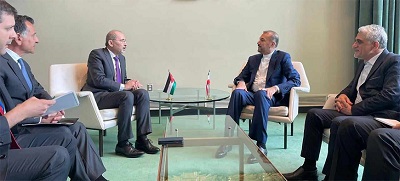 Safadi, Iranian counterpart discuss war on Gaza, regional escalation
Safadi, Iranian counterpart discuss war on Gaza, regional escalation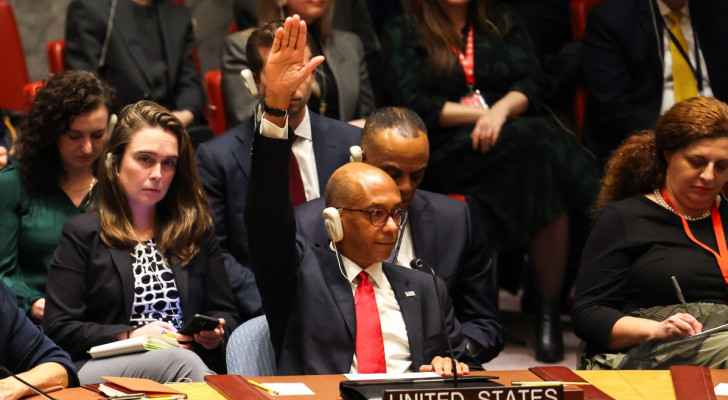 US vetoes Security Council resolution on full Palestinian UN membership
US vetoes Security Council resolution on full Palestinian UN membership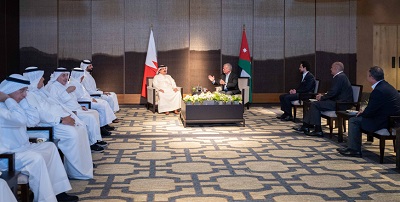 King, Bahrain monarch stress need to maintain Arab coordination
King, Bahrain monarch stress need to maintain Arab coordination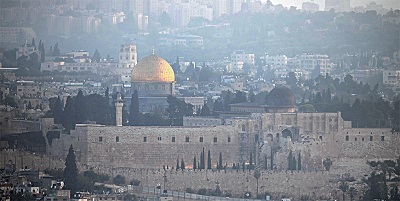 Security Council to vote Thursday on Palestinian state UN membership
Security Council to vote Thursday on Palestinian state UN membership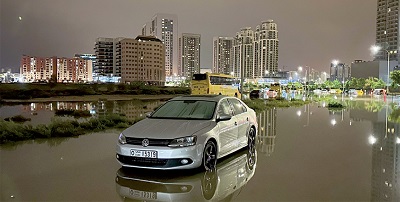 Dubai reels from floods chaos after record rains
Dubai reels from floods chaos after record rains
Most Read Articles
- Jordan urges UN to recognise Palestine as state
- Senate president, British ambassador discuss strategic partnership, regional stability
- JAF carries out seven more airdrops of aid into Gaza
- Temperatures to near 40 degree mark next week in Jordan
- Safadi, Iranian counterpart discuss war on Gaza, regional escalation
- UN chief warns Mideast on brink of ‘full-scale regional conflict’
- US vetoes Security Council resolution on full Palestinian UN membership
- Google fires 28 employees for protesting $1.2 billion cloud deal with “Israeli” army
- Biden urges Congress to pass 'pivotal' Ukraine, Israel war aid
- Israeli Occupation strike inside Iran responds to Tehran's provocation, reports say